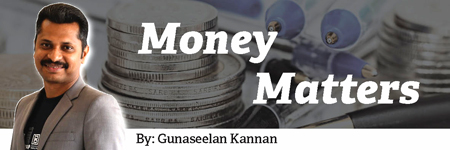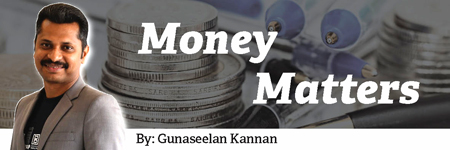
“If you make a habit of buying things you do not need, you will soon be selling things you do”
Ryan Howell, an associate professor of psychology said the impulse to buy, in part, is a survival instinct. Back in our hunter and gatherer days, when people saw something they wanted, they’d grab it, even if they didn’t need it, because it was likely they wouldn’t come across that item again.
Today, we still have this characteristic but in a different perspective. There are many reasons why we buy more things than we need. Some are to satisfy our financial ego pushed by society, but some are purposeful with internal motivations. Either way, understanding why we buy more than we need is a worthy pursuit.
The famous French philosopher Denis Diderot lived nearly his entire life in poverty, but that all changed in 1765. Diderot was 52 years old and his daughter was about to be married, but he could not afford to provide a dowry.
Despite his lack of wealth, Diderot’s name was well-known because he was the co-founder and writer of Encyclopédie, one of the most comprehensive encyclopaedias of the time.

When Catherine the Great, the emperor of Russia, heard of Diderot’s financial troubles she offered to buy his library from him for 1,000 pounds, which is approximately US$50,000 in 2015 dollars.
Suddenly, Diderot had money to spare. Shortly after this lucky sale, Diderot acquired a new scarlet robe. That’s when everything went wrong. Diderot’s scarlet robe was beautiful.
So beautiful, in fact, that he immediately noticed how out of place it seemed when surrounded by the rest of his common possessions. In his words, there was “no more coordination, no more unity, no more beauty” between his robe and the rest of his items.
The philosopher soon felt the urge to buy some new things to match the beauty of his robe. He replaced his old rug with a new one from Damascus. He decorated his home with beautiful sculptures and a better kitchen table. He bought a new mirror to place above the mantle and his “straw chair was relegated to the antechamber by a leather chair.”
These reactive purchases have become known as the Diderot Effect. (James Clear, 2016)
The Diderot Effect reminds us that life is only going to have more things fighting to get in. How then might we overcome the Diderot Effect in our lives and resist this pattern of unnecessary consumerism? Let’s discuss some thoughts on this:
Avoid impulsive buying
The simple solution to Diderot Effect problem is to reduce impulsive buying. In simple explanation, impulsive buying is anytime you purchase something you weren’t planning to.
Almost all of us have gotten into short term excitement of impulsive buying, including myself. Men think women do impulsive buying all the time, but some research shows men spend more on impulsive buying.
Now, men or women, all of us need to be aware of when are we doing impulsive buying. When that urge occurs, take a few minutes or few days before proceeding with that unplanned purchase, and this will help clear your mind and assist you in making a rationale, unemotional decision.
Stop comparing
The need to keep up with others is probably another factor that leads to the Diderot Effect. If we are always keep comparing ourselves with others and want what others have, we will never have enough.
We will always want more. That’s an endless cycle, and it will never lead to happiness. In fact, it will only bring us more misery and lead us to a financial downfall.
It makes no sense to compete for the best and the newest of everything. Purchase things for their usefulness rather than their status. Stop trying to impress others with your stuff and start trying to impress them with your life.
Keep your priorities in mind
Develop your financial priorities as this can reduce Diderot Effect. Once you set your priorities right, it will be difficult for you to fall into impulsive buying or indulge in any unnecessary purchase.
Having financial priorities that you’re determined to meet can really help you resist temptations that can cause you a downfall. Remember, Diderot Effect is the root cause, which prevents us from achieving our financial goals or taking the wrong track from our priorities.
New purchases add more expenses
The things we buy require maintenance, time and effort. They need to be cleaned, organised, managed, and maintained. For example, before jumping the bandwagon to buy your dream car, take into calculation the other expenses that come alongside it, such as car insurance, maintenance and service expenses, road tax and others.
Decide if this is something within your affordability after taking into account the additional expenses, and then decide if it’s worth the buy. Even a simple thing such as purchasing a part dress has additional expenses such as matching shoes, accessories and such.
In a nutshell, each and every one of us need to realise that possessions do not define us, do not define our success and this fact should remain strong in our minds, no matter how marketers try to influence you.
Accumulation of wealth should make us a better person, enable us to evolve in life and achieve purposeful life goals without getting into rat race. The abundance of life is not found in the things that we own, its in the fulfilling and satisfying life we lead, free from burdens and problems.
Gunaseelan Kannan, a licensed financial advisor by Bank Negara Malaysia and a licensed financial planner by Securities Commission (CMSRL/B4198/2013), is currently pursuing his PhD research on financial planning and financial technology. He also lectures on accounting, finance and business fields in Asia Pacific University of Technology and Innovation (APU). He is the Malaysian Financial Planner of the Year 2018 and 2019 Award winner (1st Runner Up), from Financial Planning Association of Malaysia. Email: [email protected]
The post The Diderot Effect: Money and you appeared first on Borneo Post Online.


